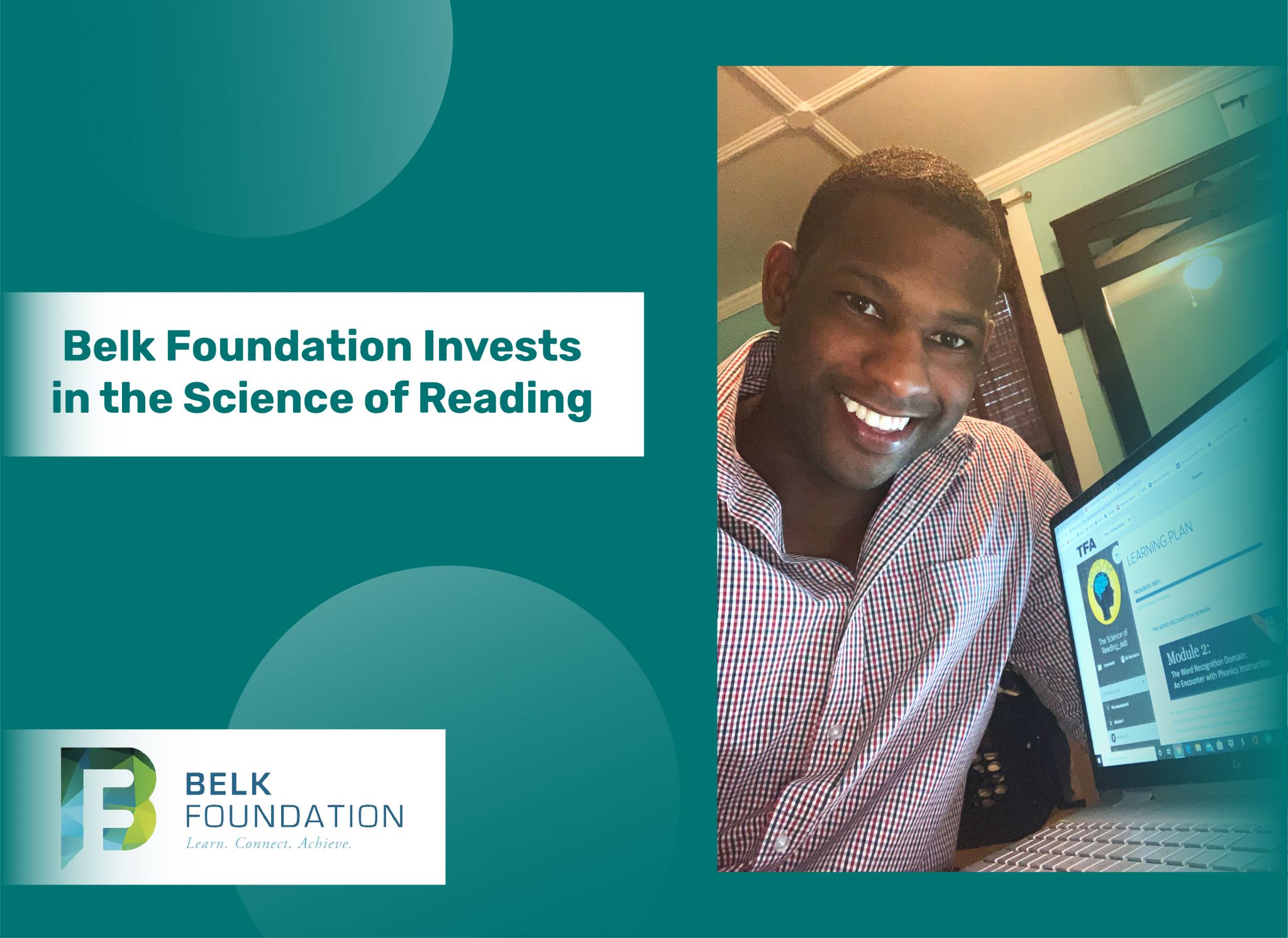During the 2020 National Summer Institute, 2,800 Teach For America corps members were trained to begin teaching in public school classrooms in low-income communities across the United States. Due to the COVID-19 pandemic, corps members were trained virtually, knowing that they too might have to teach remotely in the 2020-21 school year. As most of the incoming corps members had minimal experience with explicit reading instruction, TFA looked to Hill Learning Center in partnership with other national reading experts – The Barksdale Reading Institute, The Reading League, The Right to Read Project and The Reading Teacher’s Top Ten Tools – to create a 4-week professional development series on the Science of Reading. This collaboration was made possible in part by a $50,000 investment from The Belk Foundation.
This project was one of many rapid responses to the pandemic-related closure of public schools across the country. Without the opportunity to learn and practice in person, TFA knew they had to train corps members in a wholly different way. They also prioritized equipping new teachers with the fundamentals of how to teach reading. The virtual training program developed by this collaborative and The Farthest Pixel instructional design firm introduced corps members to the foundational elements of reading instruction, enabling them to use science-based approaches to teach students at all grade levels, including struggling readers. Beth Anderson, the Executive Director of Hill Learning Center, said that “TFA teachers especially appreciated the course infographics, videos, and sample resources and templates that helped make the conceptual content accessible and applicable to the classroom.”
The Belk Foundation prioritizes third grade reading proficiency and equitable access to effective teachers – both of which are elevated in their grant to Hill Learning Center. The collaborative Science of Reading course impacted thousands of teachers and students in North Carolina and across the US. Moreover, it has the potential to impact many thousands more as the national partners plan to launch a public version of the course in January 2021. Hill is grateful for The Belk Foundation’s visionary support of this project.
